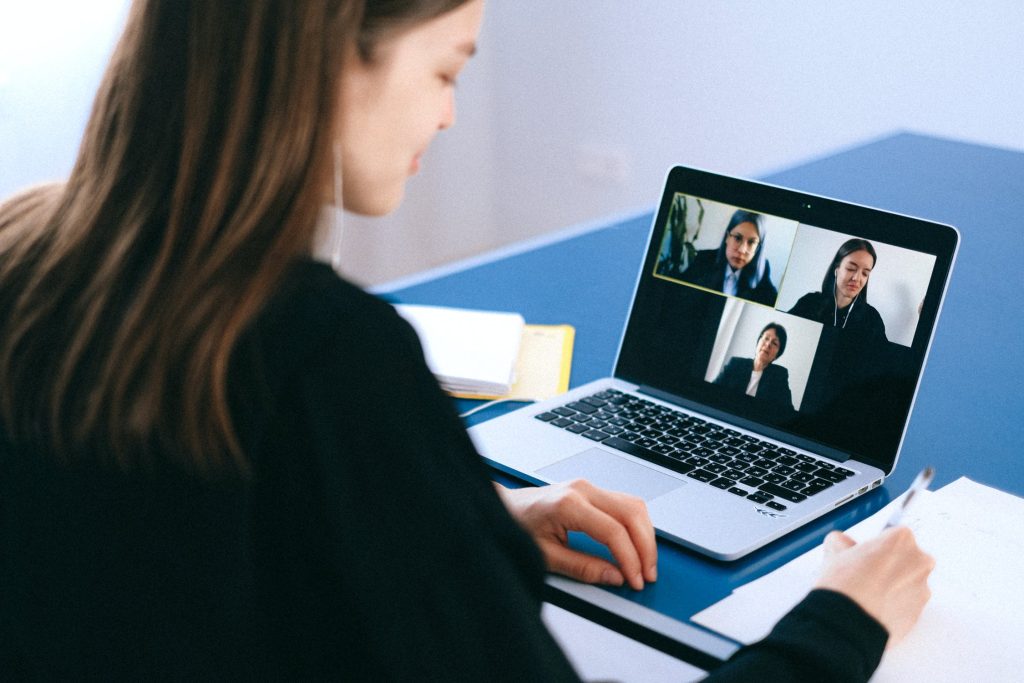“Video interviews have been a game-changer. It makes life so much easier. No more difficult travel arrangements, costs, and scheduling weeks in advance. You find an hour and you talk. Recorded videos are the next frontier. Then, it really doesn’t matter anymore where you are. And it makes sense. In the time of YouTube, TikTok, and Instagram Reels, people are getting more and more comfortable with being recorded.”
Companies have already been making changes to the way they do business and how they conduct certain processes within. Recruitment is one. And because it’s the first proper introduction with the company, it’s important to do it well. Let’s take a look at the thing you as a recruiter, or as a hiring manager can do to make sure this process is seamless. Remember, “there’s not a second chance to make a first impression.”
1. Treat the interview like any other interview
And that means you prepare. Just like with regular interviews, you select the candidates based on your requirements. Those requirements, as well as your needs for the team, culture fit, and attitude, will determine your questions.
Either you, your team, or your assistant helps you set up the appointments – this will be easier because you can eliminate the tedious scheduling required to bring people in at the same time. This schedule should include a prep session for the hiring team, in which you go through the desired outcome of the interview, standard questions, and assigning roles.
2. Check, Test and Check and Test Again
Regardless of how far technology has come, with large platforms offering free, cheap, and professional solutions that can even be done on phones – that now have the quality of professional movie capturing equipment – things have gone and will go wrong. Connections may be wobbly, passwords wrong, rooms double-booked, schedules change.
For technology, it helps to test ahead of time. Make sure that the platform works by running a test. You can have one member of your team participate in a meeting and see if everything works as it should. That way you can avoid the issue of having to download an update 2 minutes before the interview starts. It also ensures you know how the system works. Even though everybody will understand if things happen, you come across a lot better if all works as it should.
For the logistics, double-check all appointments have been confirmed a few days before the interviews. If any schedules have changed, you can at least work in an alternative interviewer. Do it ahead of time and the applicant won’t even know it.
If you use a room for your interviews, make sure you don’t use the same room for interviews if you run them back-to-back. You want to avoid having the next candidate show up in the room early while you are still interviewing the previous candidate.
3. Prepare the Candidates
In general, it is a good idea to prepare the candidates for the interview. Let them know who they’re going to be talking to, some background on the company, department, role, and anything else you think may be of importance to help the candidate perform at their best in the interview. Remember – it is not just the intent for you to ‘grill’ the candidate, it’s your job to woo them as well. Make their first interaction a positive one, while you ensure the candidates have what it takes.
For the video interview, work with your IT specialist to create a short instruction of your video conferencing platform. You can share this with the candidates so they can prepare the technical side of the interview. Most likely the candidate will know the workings if you use Handouts or Zoom, but it may be beneficial if you use a more corporate-oriented tool such as WebEx or Teams. When you do, advise the candidate to download and test beforehand, to avoid issues of the tool not being available at the moment of the interview.
4. Build in Enough Time
In regular situations, scheduling a one-hour interview is more than enough. It’s enough for the candidate to arrive, have the actual interview, and leave the room and location. For a video interview, that may be difficult. If you encounter technical difficulties, especially if people dial in from different locations to your digital room, you’ll lose time to interview. You need the time to go through your questions and provide the opportunity for the candidate to adequately answer and provide explanations.
5. Conclude As You Would in a Normal Interview
Even though it may feel like a different type of interview, the usual rules apply for the recruiter. That means that you run the show and you define and keep track of the calendar. You ensure the hiring team and the candidates are clear on the next steps and what to expect, when.
When you conclude the interview, round up, allow for straggling questions from the hiring team, and for sure, the candidate. Then inform the candidate of what to expect next. Is there another round of interviews? After this video chat, is a live interview on location necessary and to be expected? By when does the candidate hear more? Think of what logical questions a candidate may have, and help by limiting the anxiety and nerves that should normally be present when something like a job is at stake.
About us
AskAway is disrupting the way recruitment is done, by eliminating the need to plan and schedule time-consuming meetings in packed agendas and by offering tools to record or even prerecord interviews. This allows you and your hiring team the opportunity to share and analyze the candidates for your interviews when it suits you. We pre-screen so you don’t have to.
Contact us to find out more, or sign up for a no-strings attached free demo of our tool here.









